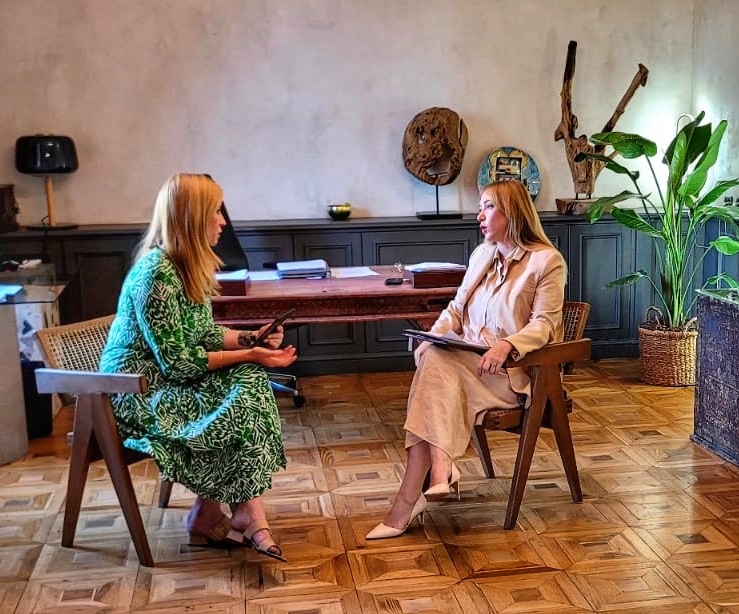Limitations of data collection combined with social stigma result in a challenging situation for those dealing with alcohol addiction, according to toxicologist and addiction specialist Dr Sonia Bitri in an interview with Euronews’ journalist Alice Taylor
Sonila shed light on the underreported nature of the issue, the importance of recognizing alcohol abuse as a chronic disease, and the significance of a comprehensive treatment approach that includes psychotherapy and ongoing care.
“I think the problem is underreported even in the statistics of the government. As you mentioned, taking raki in the morning, it is a habit, it is considered healthy- it helps the heart, so people don’t understand it can cause damage. They also don’t know how much is ‘normal’ and think two or three glasses a day is ok.”
While statistics may indicate a low number of cases, the cultural acceptance of consuming traditional alcoholic beverages, such as raki, as part of daily routines obscures the extent of the problem. Many individuals are unaware of the potential harm caused by excessive alcohol consumption and perceive it as a normal aspect of their lifestyle. Consequently, the actual prevalence of alcohol abuse in the country remains largely hidden, with only severe cases being reported.
She added they think it is a lifestyle and it is not reported as a problem. “It is like an iceberg and we only see the tip of it,” she said, adding some people don’t even consider these two or three glasses a day as drinking alcohol.
Sonila stressed the importance of recognizing alcohol abuse as a chronic brain disease. This understanding helps to dispel societal stigmas associated with addiction. Comparing it to chronic conditions like diabetes or hypertension, he emphasized that alcohol use disorders require ongoing treatment and support. By acknowledging addiction as a treatable disease, individuals and their families can approach the recovery process with hope and optimism.
“When we understand it is a chronic disease, we understand it is treatable. That is really important because sometimes when the family and patient come in my office, they are hopeless. They are trying but don’t think the person will ever get over the problem,” she said.
She added that people stigmatise alcohol addiction, but rather we should consider it the same as other chronic conditions like diabetes.
“We as a society can admit more easily a patient with diabetes than a patient with alcohol use disorders. We don’t stigmatise a patient with diabetes, but we stigmatise a patient with alcohol use disorders. He deserved that disease because he’s using alcohol for his own pleasure-we have to do a lot to change this mentality,” she added.
But when it comes to treatment, Sonila also highlighted the obstacles faced in Albania, such as the lack of specific medications and affordable outpatient rehabilitation centers.
“There are medications that help prevent relapse which are not availab le in Albania,” shesaid, adding that often patients have to seek medication or treatment abroad which is not possible for everyone due to economic constraints. She also explained there is no state rehab facility, just several private ones that also have high costs.
In addition, Sonila believes psychotherapy is essential to treating the ongoing disease, something that is a new concept for many toxicologists who are used to treating just the acute condition.
“We cannot cure addiction without psychotherapy. And this is something new for most of clinical toxicologists. till recently, we dealt only with physical part, but I’m more and more convinced that this net can be cured only with drugs with pills,” she said.
But asides from practical and medical steps to recovering, Sonial emphasises the role of love, understanding, and support from family and loved ones in the recovery process.
She emphasized that alcohol abuse affects not only the individual but also their families and the wider society. Families and loved ones should encourage treatment and provide a nurturing environment that fosters the individual’s commitment to change.
“It’s really hard to love somebody who has this this problem. But when it’s love, I say to the woman, let’s give a last chance because sometimes in my office come couples who rehabilitation is the last possibility for their family,” she said.
“But I see families that have overcome this problem and have another life now and when I see these things, I become more optimistic and beg family members, if you love him, let’s give another chance because the individual who has this addiction is not always aware of the consequences,” she said.
Follow The Balkanista!



